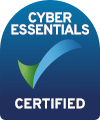We’re not at a new normal. For months now, or is it years we have been living through the ‘long crisis’ where political turmoil and increasing concern with the visible deterioration of the climate situation is overshadowed by and amplified by a global pandemic. Against this background changes in working practices that might once have taken decades to emerge are driving relentless disruption in businesses around the world. What we all want to some degree or other, is for the new normal to establish itself and for a period of relative calm and stability to appear so that we can predict and plan our private lives and business in general. Although trends have already surfaced and many families and businesses have invested in new ways of working and living, change just keeps on coming.
We must recognise that our goal is not to be able to live and work as we did before, but to adapt to a situation where new norms, expectations, aspirations and practices have appeared and will continue to emerge.
Perhaps this is the key to understanding the present and beginning to manage the future in new ways. What is required now, is the recognition that at home and work, we need to equip ourselves for adaptation. To be able to respond to and manage a higher rate of change and a greater degree of diversity in the practices that make work and leisure actually deliver for us all. We need to be able to do the old things in new ways and new things in ways we have never done before. And be ready to adapt as circumstances change, as they inevitably will, allowing us to deliver continuity rather than disruption. At work we need to accommodate one another – co-workers and customers – as we go to work at different times, in different places, and we manage and organise differently.
Perhaps the key element in all of this is the personal digital environment of every employee operating for some or part of the time at a remove from the ‘company’.
These new and often more flexible work arrangements require new structures, performance expectations and necessary change in employer-employee relations. A rapidly evolving situation which is creating unique demands for employers and employees alike. Creating a secure, private medium of exchange within and between people working in this environment or culture as it will soon become is paramount. At this moment the effort to develop a comprehensive toolset that engenders trust is the greatest challenge faced by individuals and businesses. Without trust, based upon mutual respect and shared understanding of what privacy is and means, this will be very painful process. At a time when trust in corporations, governments and even science is at a new low we need to make some big decisions to make this work. One early big step will be to remove ourselves from the casual surveillance of Big Tech companies as we go about our lives.

